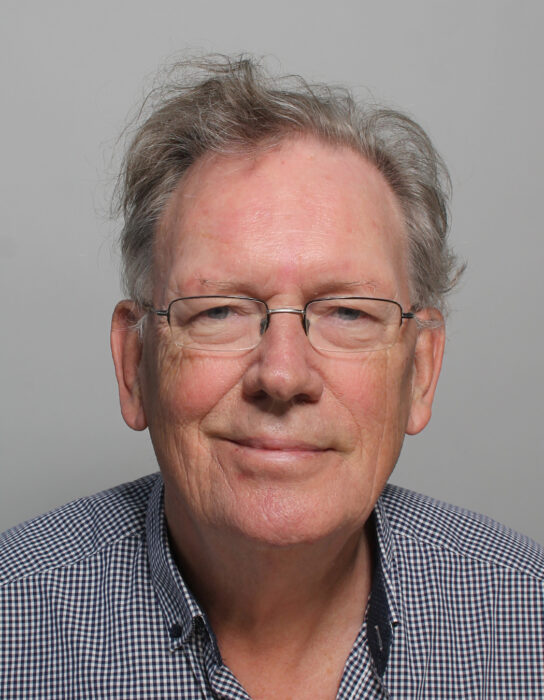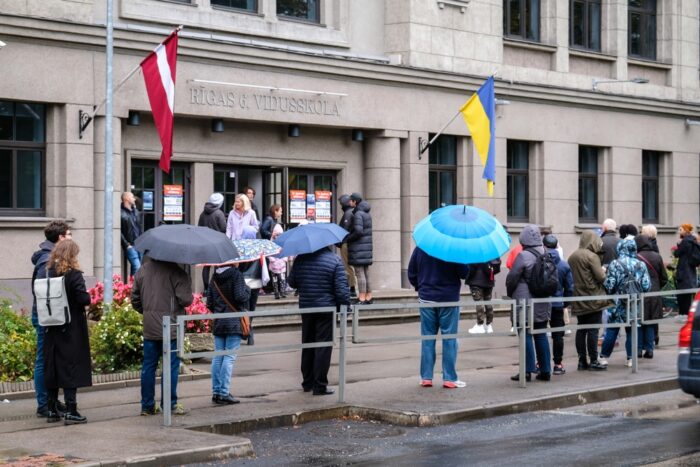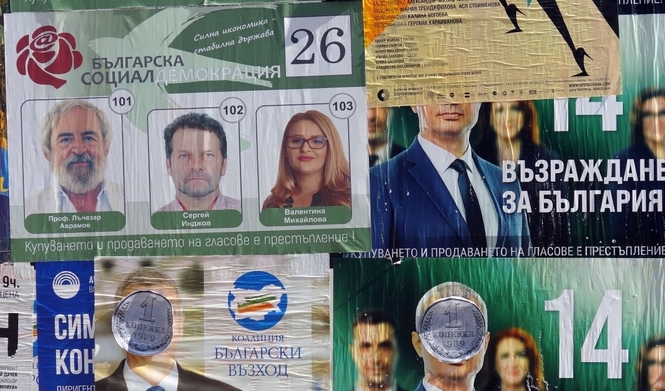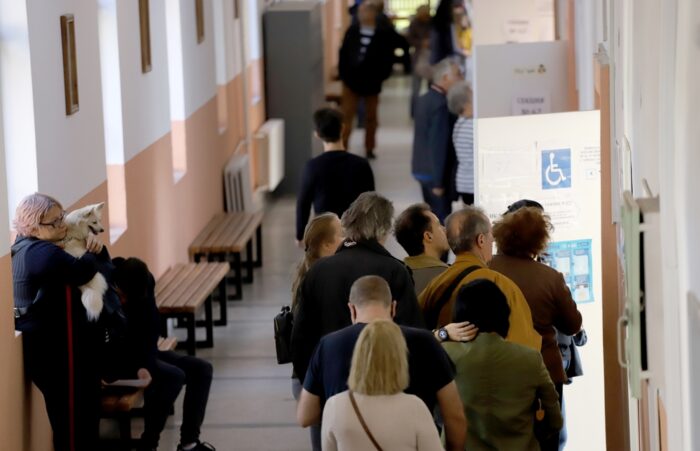Find all related Progressive Post
Progressive Post

This article was written with the valuable contribution and under the co-authorship of Ties Huis in ‘t Veld, the international secretary of the PvdA, whom the Progressive Post wishes to thank warmly.
This November, snap elections are scheduled in the Netherlands. For these polls, the Dutch Social Democrats (PvdA) have decided to present a common list and platform with GroenLinks (GreenLeft). Many of our international political friends ask us why. Here is our explanation.
Though quite unique, this common list is not just another progressive experiment coming out of thin air. The sudden collapse of Prime Minister Mark Rutte’s fourth government coalition in July has forced both parties to accelerate a process of ever-closer cooperation that was already underway. Although such far-reaching steps had already been considered in the past, in the run-up to the 2019 European elections it became especially evident that on substance there were hardly any differences between the two. The groups in the Senate merged this year after the regional elections. In the Second Chamber of Parliament, our house of representatives, GroenLinks and PvdA have already operated as one since the last national elections.
What helped is that GroenLinks has increasingly focussed on ‘classic’ Social Democratic issues and the PvdA on environmental ones. In this sense, the Greens had already become more red and the ‘Reds’ more green. The new leader of the joint list, now former EU Commissioner for the Green Deal and former PES ‘Spitzenkandidat’ Frans Timmermans, is the personification of that mix. Members of both parties overwhelmingly support him.
Also, on foreign affairs, the parties converged: both accepted the new security reality in Europe by fully supporting arms deliveries to Ukraine and pleading for major increases in defence spending.
The red-green cooperation goes against the trend of splintering in the Dutch political landscape with, currently, around twenty parties represented in the national parliament. That is also appreciated by voters who in recent polls give the new combination more seats than it has now. It represents two different electorates: bigger and smaller cities, the young and the elderly. While both were suffering from declining numbers of votes, it now looks like the future Groenlinks/PvdA will become a very relevant factor after the elections and a potential government partner with a strong bargaining position. Predictions have also other ‘newcomers’ reaching similar scores. A shake-up of Dutch politics is foreseen with opportunities created for parties that are able to tap into the low confidence of many voters in traditional politics.
It is of course a radical step – although not a merger of the two parties. Maybe more of a political ‘living apart together’ (LAT) relation. They remain in different European political families that are however close partners in the European Parliament. Actually, GroenLinks was, originally, a merger of three smaller radical Christian, pacifist and communist parties. What used to be four political groups, now becomes one political force. A force with space for the parties’ own history and traditions that should be cherished and on which something completely new is based.
The breakthrough could not have happened without the pressure from below – the rank and file. Major steps in the process were supported by very large majorities in a number of referenda. This made it certainly easier to agree on the necessary procedures to create one list, elect a leader, write a platform and merge the campaign organisations. Combining forces has also been made easier by the fact that both parties have around the same seats in the present parliament and by the joint (frustrating) experience of being in opposition. It is now or never in terms of timing.
The format of the GroenLinks/PvdA cooperation might be unique, but progressive forces teaming up is not. The Italian PD is a merger party. In France, Socialists and Greens became part of a left-wing electoral coalition. In several countries, Social Democrats and Greens have both joined coalition governments. Apart from the tactical and strategic advantages of such cooperation – strengthening the left overall – we consider the main substantive motive to have become very urgent. The common message centres on what Frans Timmermans calls ‘climate justice’, the need to combine an ambitious climate agenda with a just and fair distribution of the costs involved. That is part of his Green Deal and the solidarity we need today: within countries and between them. And between generations. This is the way forward and contrasts strongly with right-wing rivals who have put immigration at the top of their agenda. Only by mixing red with green will the left be able to convince voters of its continuing importance. There are more ways to achieve that. Electoral systems differ. But the Dutch approach is a radical step in that direction. We will be happy to report on its progress and on the inevitable lessons learned. We are convinced it will survive the test of time.
Photo credits: PvdA
| Cookie | Duration | Description |
|---|---|---|
| cookielawinfo-checkbox-advertisement | 1 year | Set by the GDPR Cookie Consent plugin, this cookie is used to record the user consent for the cookies in the "Advertisement" category . |
| cookielawinfo-checkbox-analytics | 11 months | This cookie is set by GDPR Cookie Consent plugin. The cookie is used to store the user consent for the cookies in the category "Analytics". |
| cookielawinfo-checkbox-functional | 11 months | The cookie is set by GDPR cookie consent to record the user consent for the cookies in the category "Functional". |
| cookielawinfo-checkbox-necessary | 11 months | This cookie is set by GDPR Cookie Consent plugin. The cookies is used to store the user consent for the cookies in the category "Necessary". |
| cookielawinfo-checkbox-others | 11 months | This cookie is set by GDPR Cookie Consent plugin. The cookie is used to store the user consent for the cookies in the category "Other. |
| cookielawinfo-checkbox-performance | 11 months | This cookie is set by GDPR Cookie Consent plugin. The cookie is used to store the user consent for the cookies in the category "Performance". |
| csrftoken | past | This cookie is associated with Django web development platform for python. Used to help protect the website against Cross-Site Request Forgery attacks |
| JSESSIONID | session | The JSESSIONID cookie is used by New Relic to store a session identifier so that New Relic can monitor session counts for an application. |
| viewed_cookie_policy | 11 months | The cookie is set by the GDPR Cookie Consent plugin and is used to store whether or not user has consented to the use of cookies. It does not store any personal data. |
| Cookie | Duration | Description |
|---|---|---|
| __cf_bm | 30 minutes | This cookie, set by Cloudflare, is used to support Cloudflare Bot Management. |
| S | 1 hour | Used by Yahoo to provide ads, content or analytics. |
| sp_landing | 1 day | The sp_landing is set by Spotify to implement audio content from Spotify on the website and also registers information on user interaction related to the audio content. |
| sp_t | 1 year | The sp_t cookie is set by Spotify to implement audio content from Spotify on the website and also registers information on user interaction related to the audio content. |
| Cookie | Duration | Description |
|---|---|---|
| CONSENT | 2 years | YouTube sets this cookie via embedded youtube-videos and registers anonymous statistical data. |
| iutk | session | This cookie is used by Issuu analytic system to gather information regarding visitor activity on Issuu products. |
| s_vi | 2 years | An Adobe Analytics cookie that uses a unique visitor ID time/date stamp to identify a unique vistor to the website. |
| Cookie | Duration | Description |
|---|---|---|
| NID | 6 months | NID cookie, set by Google, is used for advertising purposes; to limit the number of times the user sees an ad, to mute unwanted ads, and to measure the effectiveness of ads. |
| VISITOR_INFO1_LIVE | 5 months 27 days | A cookie set by YouTube to measure bandwidth that determines whether the user gets the new or old player interface. |
| YSC | session | YSC cookie is set by Youtube and is used to track the views of embedded videos on Youtube pages. |
| yt-remote-connected-devices | never | YouTube sets this cookie to store the video preferences of the user using embedded YouTube video. |
| yt-remote-device-id | never | YouTube sets this cookie to store the video preferences of the user using embedded YouTube video. |
| yt.innertube::nextId | never | This cookie, set by YouTube, registers a unique ID to store data on what videos from YouTube the user has seen. |
| yt.innertube::requests | never | This cookie, set by YouTube, registers a unique ID to store data on what videos from YouTube the user has seen. |
| Cookie | Duration | Description |
|---|---|---|
| COMPASS | 1 hour | No description |
| ed3e2e5e5460c5b72cba896c22a5ff98 | session | No description available. |
| loglevel | never | No description available. |


